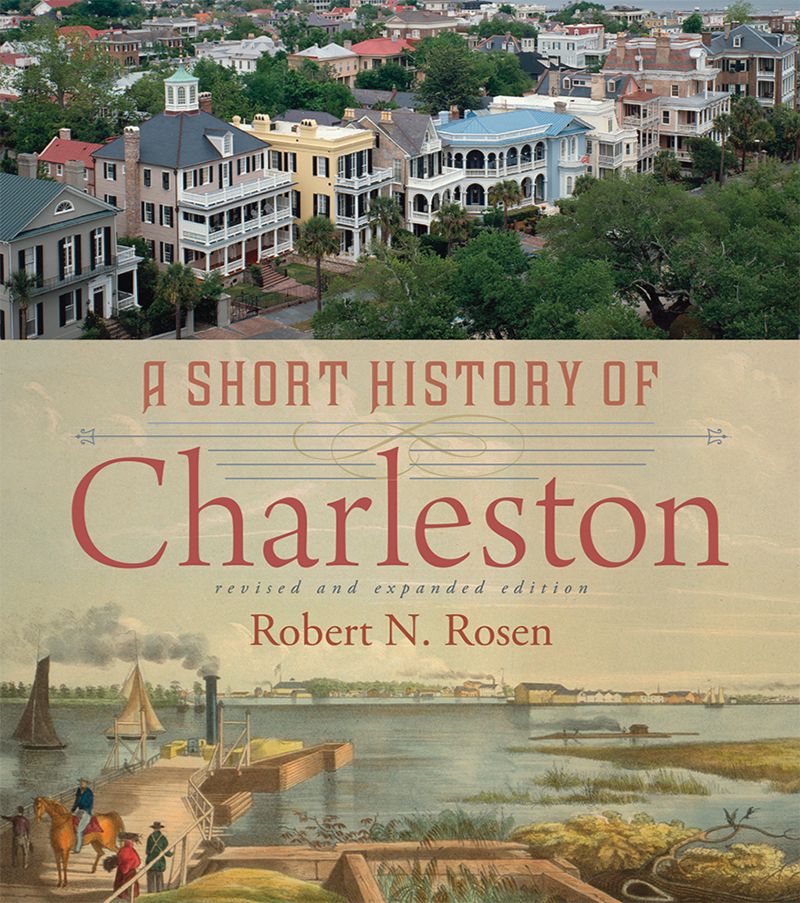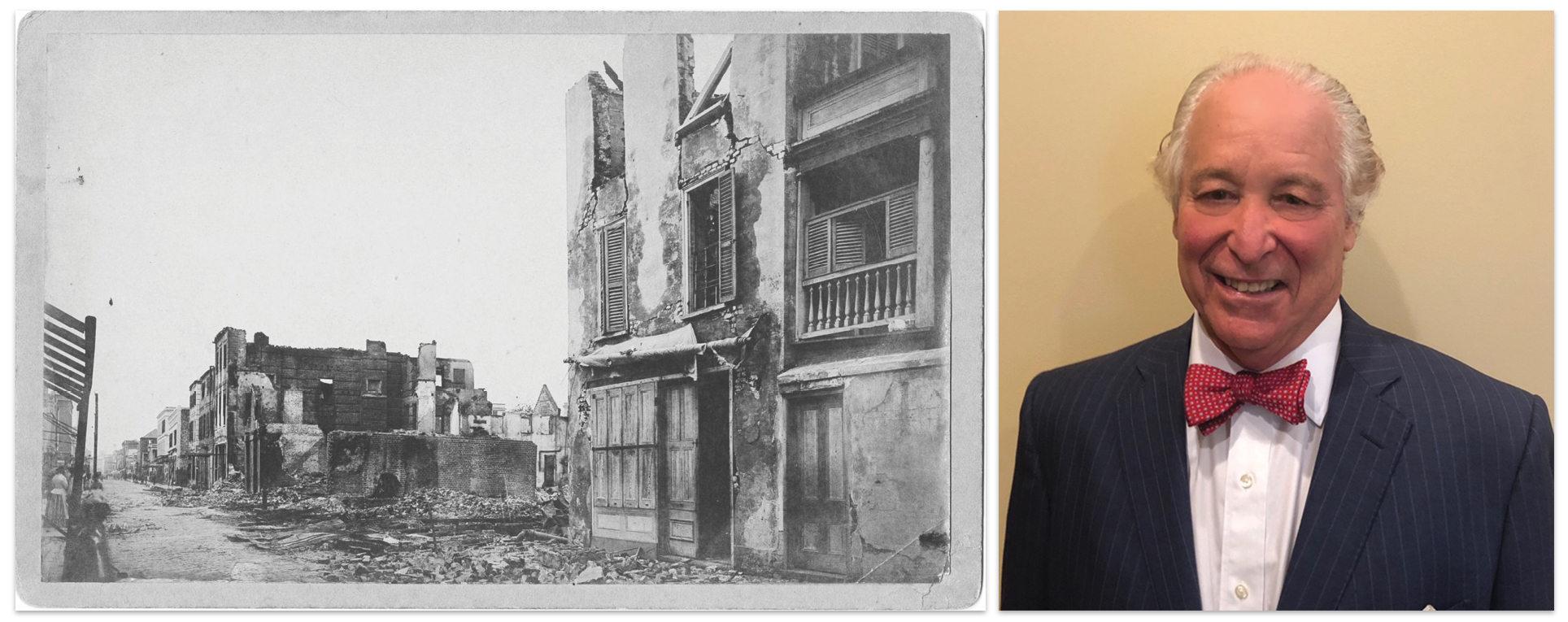Attorney and author Robert Rosen stresses the city’s contradictions

While the history of Charleston has been told many times before, it’s not often been rendered so wryly, briskly, or affectionately as by author Robert Rosen in his A Short History of Charleston: Revised and Expanded Edition (University of South Carolina Press, May 2021). His lively and fast-paced book—at just over 200 pages with numerous black-and-white illustrations—succinctly sums up nearly 350 years, spanning the city’s proprietary past to its present incarnation as a tourist destination dependent on (and finally coming to terms with) its past.
Rosen follows historical fact and chronology, vivifying it with many fanciful quotes and anecdotes in the margins of the text. He favors bon mots of others while adding his own, punctuating his text with winks and asides.
He does not dance around the city’s litany of sins, including its indefensible addiction to slavery and its resultant reaping of white wealth from Black misery. Yet there are grace notes, too—tributes to what Owen Wister called the most wistful of American cities, one often seemingly lost in a reverie of its own myths. Rosen never becomes shrill or sentimental and is always on the lookout for the telling detail to illustrate, distill, or serve as a corrective to the larger story. Indeed, the ironies and inconsistencies of Charleston, its contrasts and contradictions, are stressed as he parses the historical and enduring tensions between arrogance and elegance, guilt and gentility.

(Left to right) Damage near King and Broad streets after the 1886 earthquake; Local attorney and author Robert Rosen.
While some may find the lack of footnotes disconcerting in a university press book, most will enjoy this history, which was originally published in 1982, and has now been republished in an expanded and revised format. All is here as before—with attention to the eras of royalty, revolution, rebellion, reconstruction, and renaissance—plus a new chapter on the “Age of Riley,” a nod to Mayor Joseph P. Riley, Jr.’s 40 years in office. In these 30 pages, the pace quickens, statistics fly, and names are dropped in a dizzying recap of the many head-spinning changes the city underwent from 1975 to 2015, with some details as recent as 2020.
The summary may be news to some, yet will trigger memories for many who have witnessed the changes over the years. Again, Rosen shares his opinions, veering to boosterism. While dutifully paying tribute to those murdered at Emanuel AME, he omits the loss of nine firefighters years before. “Unrepentant” is a word he quotes from one observer referring to Charleston’s refusal to acknowledge some of its citizenry’s darker deeds. It’s a word that fits Rosen, too, unrepentant in his point of view, and unrepentant in his love for the city that sired and inspired him.